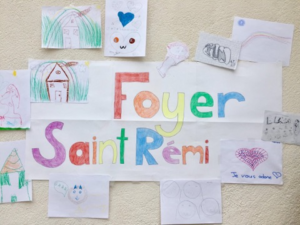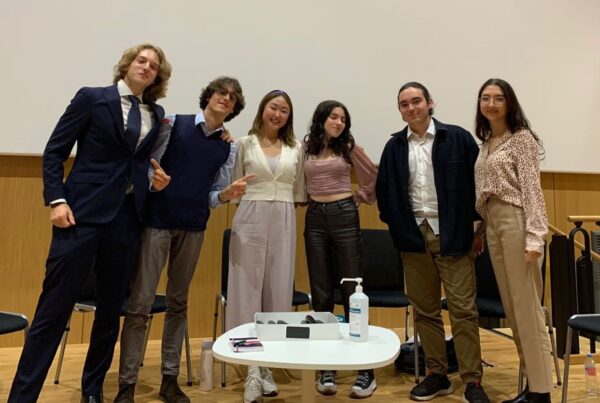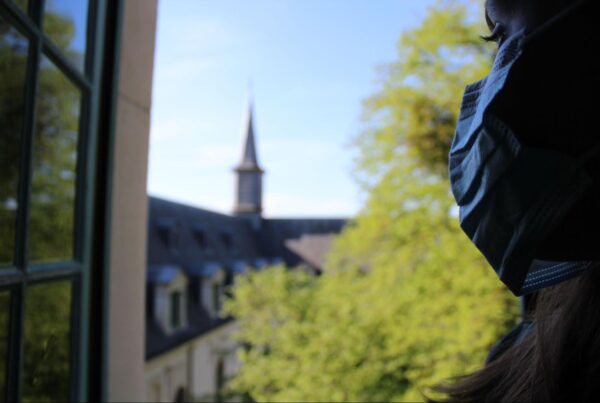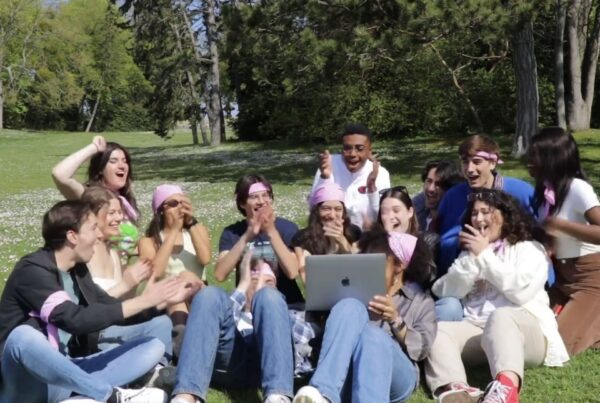There are countless associations on campus that offer activities and entertainment to the Sciences Pistes. Some associations, such as the Foyer Saint Remi, have an entirely different purpose and target audience. Every day, a group of their student volunteers spends an hour at the center for children in Saint Remi, playing with children and helping with their school work.
In France, more than 55,000 children live in a Foyer ( a children’s home) such as the one on Saint Remi street. Housed in a large stone building, it welcomes around 70 children. These structures, present in most French cities, offer a refuge to those who can no longer live with their families. As stressed by Ariane Walter, one the association’s three presidents whom we interviewed, they are not there through any fault of their own. Many have endured traumatic experiences before their arrival, from isolation to abuse. Some will never see their parents again as they attempt to rebuild new life and some may see their families during weekends, accompanied by a team of guardians and educators.
The Foyer is assisted with this by the 33 students who make up the association’s 2018/19 cohort. About eight students head over to the Foyer on a typical week day. They provide academic help, whether that be through reading to the younger children or helping the older kids with math exercises and motivation letters.
“We really tell the students that they shouldn’t behave [with us] as they would with their siblings,” Ariane explains. Despite this, a strong relationship is still forged between each child and volunteer. Volunteers are encouraged to give each child individual attention. This is partly because, in their everyday lives, 15 children live on each floor of the Foyer where they play, eat and spend time together constantly.

Photo courtesy of the Foyer St Remi association
The association’s involvement doesn’t stop with schoolwork. Throughout the year, they organize a number of trips and activities for the children. Last semester, a trip was organized to the Palace of Versailles, and one to the Cité des Sciences in Paris. These trips, along with the ones organized by the Foyer itself, provide the children with some of their only opportunities to travel. Ariane notes the contrast between the reactions of children from the Foyer and the reaction she had at the same age. “The average kid, they’d be saying, oh, cool, Versailles. Whereas with them you really see how much they appreciate this, and how much enthusiasm they have for it!”
Ariane notes that helping them progress with their school work and education is no easy task, but the reward is seeing the kids do well. She explains, “[it’s] so nice seeing them succeed and… feeling that they’ll do well in life.’’
This, of course, is not always the case and life for these children is often difficult when they leave the Foyer as young adults. Children who grew up in social homes are essentially left to fend for themselves, with little support or infrastructure to help them navigate the new challenges they face. Over ⅓ of young homeless people in the country have passed through social homes and social services.
Ariane shares managerial duties with two other co-presidents, Chloe Almodovar and Elisa Jaucourt-Perroy. They separate tasks among themselves and other members, from internal communication to relations with the Foyer. This is one of the largest associations on campus, which not only requires organizing its over 30 member team, but also the added difficulty of coordinating with the Foyer staff. Despite this, the collaboration has not yet encountered any rough patches and both sides have, over the years, built a strong relationship.
The Foyer is certainly more than happy to receive extra helping hands, who provide support and organize trips. Although this center is well-funded, Foyers around France often suffer from a critical lack of means, and associations such as the one in Sciences Po are encouraged to help out. Ariane stresses that the Reims’ Foyer is far from being an unwelcoming, decrepit place. She notes how well the children are taken care of, especially compared to certain other centers, such as the one in her hometown, which was more akin to “a prison” than to a home.
Relationships are also built with other associations and together they organize trips and other activities. Collaboration has been especially fruitful with Fly Me to the Moon and Interagir, which are also concerned with similar child-oriented volunteering efforts.
Since its foundation in 2014, the association has grown and developed into one of the largest on campus. Next year, Ariane and her colleagues will pass the baton on the the next generation of volunteers, who will continue their work in an ever tighter collaboration with the Foyer. Spending her third year in California, Ariane plans to continue her engagement efforts, and discover how children’s homes are organized in the US. However, she hopes she will be able to remain in touch with “her” children, with whom she spent two formative years.
Visits to the Foyer are, according to all the volunteers we spoke to, one of the best moments of the week. All the volunteers refer to their work at the Foyer when reflecting on their best experiences as Sciences-Pistes.
Cover photo by the Foyer St Remi association
Other posts that may interest you:
- Why we need a United States of Europe
- Brexit : Comment le Royaume-Uni risque de se retrouver isolé
- Macron ou l’écran de fumée diplomatique
- Avec des amis comme ça, qui a besoin d’ennemis ?
Discover more from The Sundial Press
Subscribe to get the latest posts sent to your email.





